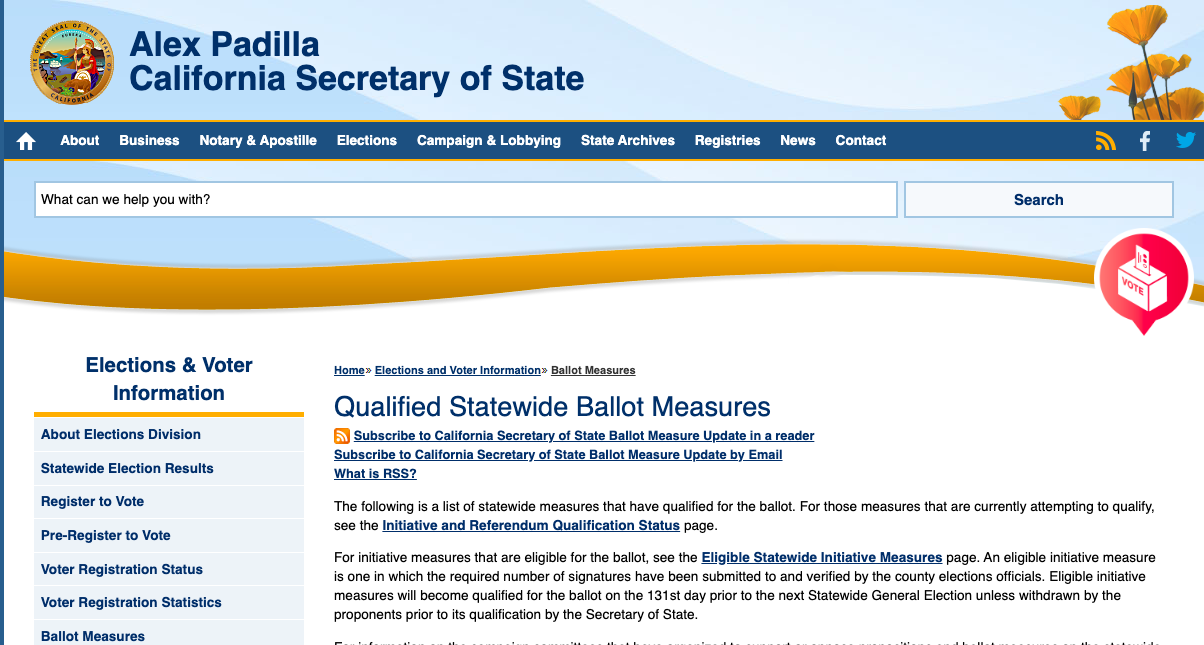
Proposition 57 (Fullerton College)
Single Subject Rule and the Ballot Initiative
If an initiative ’embraces’ more than one subject, it can neither be submitted to nor enacted by the voters.
By Chris Micheli, December 2, 2019 6:05 am
California Constitution Article II, Section 8(d) provides “An initiative measure embracing more than one subject may not be submitted to the electors or have any effect.” You may recall that a similar rule exists for bills considered by the California Legislature. And the courts have interpreted the rules in a similar manner.
The general idea behind the single subject rule is to ensure that measures are not overly complex or that they do not possibly confuse or “hide” provisions in a multi-faceted measure. Some have argued the single subject rule also precludes combining popular and unpopular unrelated provisions in one omnibus measure to increase chances of passage.
Based upon the language contained in Section 8(d), if an initiative “embraces” more than one subject, it can neither be submitted to voters nor be enacted by the voters. This means there are two opportunities to challenge an initiative measure based upon the single subject rule. In other words, there can be a pre-election challenge or a post-election challenge on this ground.
The obvious question that is posed by the language in the Constitution is what does “embracing” mean and how is “subject” defined? We have to turn to court decisions to understand how these terms are defined by California’s judicial branch so that we have guidance. The following are examples:
An initiative measure does not violate the single subject requirement if, despite its varied collateral effects, all of its parts are reasonably germane to each other and to the general purpose or object of the initiative. The single subject rule does not require functional interrelationship or interdependence of provisions or showing that each one of the measure’s several provisions was capable of getting voter approval independently of other provisions. Raven v. Deukmejian (1990) 52 Cal.3d 336
Minimization of the risk of voter confusion and deception was one of the purposes of the single subject requirement of California Constitution Article II, Section 8(d) (providing that an “initiative measure embracing more than one subject may not be submitted to the electors or have any effect”). An initiative measure will not violate the single subject requirement if, despite its varied collateral effect, all of its parts are “reasonably germane” to each other. Amador Valley Joint Union High School Dist. v. State Board of Equalization (1978) 22 Cal.3d 208
The basic guidance we have received from the courts is whether the provisions of the initiative are “reasonably germane” to each other, which is a broad test. “Germane” is defined generally as being relevant to the particular subject. This, again, is a broad definition based upon relevancy to the main topic of the initiative.
- Deposition of Expert Witnesses - February 20, 2026
- Response to Interrogatories - February 20, 2026
- Insignia of Nonprofit Associations - February 19, 2026




